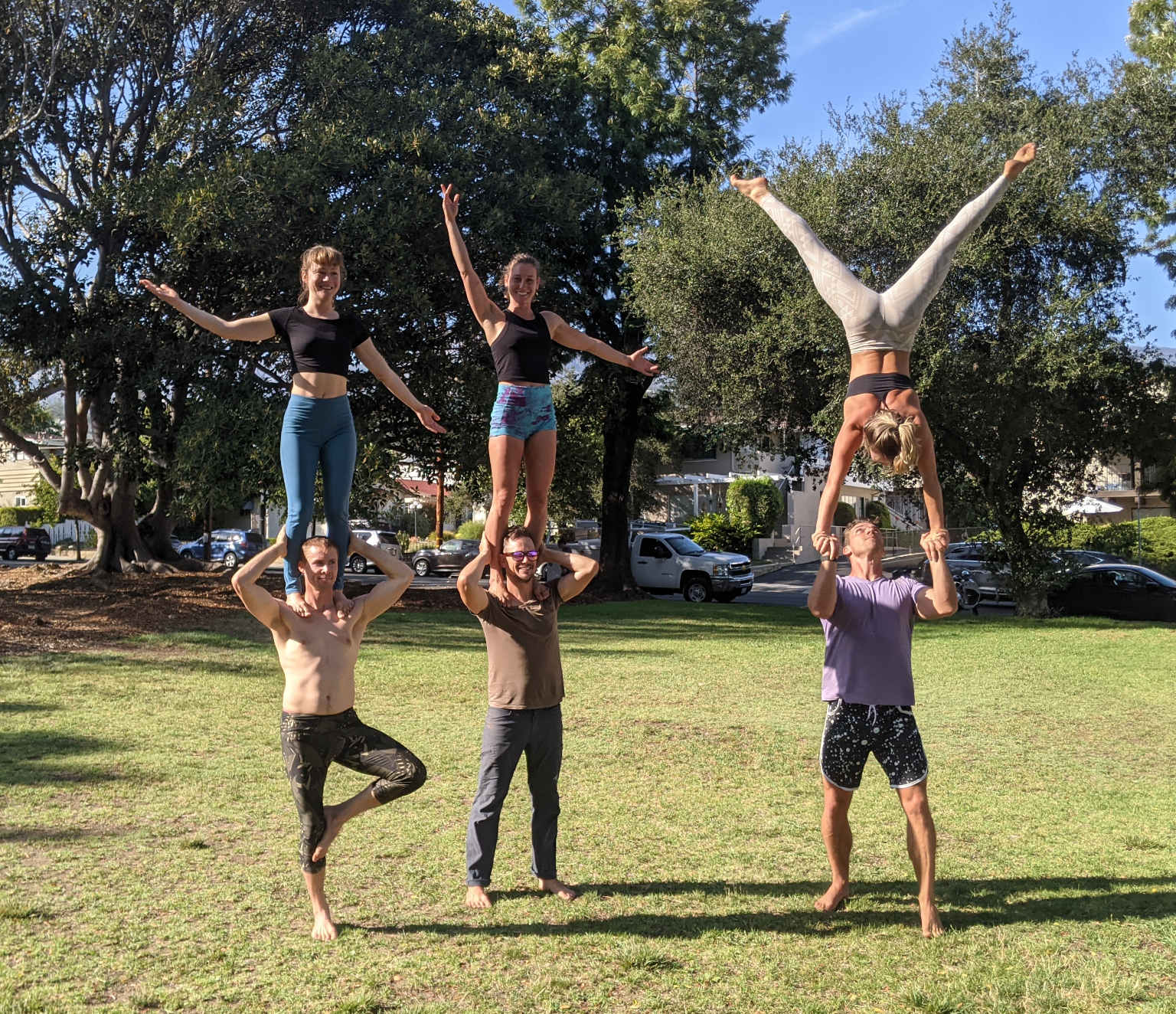How To Balance Individualism And Community In Society

People are neither completely social like ants, nor completely independent like most spiders. We have characteristics of both, and each attribute has its own benefits and drawbacks.
Humans cooperate socially because it increases efficiency. Imagine two people who are moving into upstairs apartments at the same time. It is easier for them to work together carrying two sofas up a flight of stairs than for each to carry one individually.
Additionally, we benefit from cooperation by performing different tasks and sharing the results. This happens all the time. Society is a profusion of activities that mesh together to produce the goods and services we use. We work together both directly in teams and indirectly through specialization: mining iron ore, smelting it and machining it; growing wheat, milling it and baking it; constructing bridges, computers and 747s. It is language that has made this degree of coordination possible.
At the same time, we see ourselves as individuals, each different from one another, with our own tastes, talents and ideas. Darwin proposed that individuals compete with each other for limited resources, and this view led to social Darwinism and phrases such as “rugged individualism,” “survival of the fittest,” and “law of the jungle,” attitudes that minimize or deny the role of cooperation.
Individualism and community each have their attractions and drawbacks.
Individualism offers a sense of autonomy and identity. It is the source of creativity and change. It does not necessarily accept the precepts of society, but queries why things have to be the way they are; it values fascination, variety, surprise. Art, music, new fashions, inventions and progress come from the artists, the curious, the iconoclasts who can see beyond the conventions of existing culture.
Community ensures survival in the world. Economically it provides efficiency and a variety of skills. Emotionally it offers security, comfort and familiarity, the feeling of protection.
There are downsides to both these positions, too.
The individual needs support of two kinds from other people. One is sheer survival. Here is a thought exercise: leave civilization and live alone in the wilderness. Don’t take anything that is the handiwork of others: no twine, no containers, no matches, nothing made of metal. As a special concession, take some flint knives and the clothes you are wearing. Your very life would be at risk. The second form of support is emotional. We need contact with others; a need that arises from our cooperative nature. In survival series such as “Alone,” participants often give up, not because they are starving, but because they cannot handle the solitude.
Community also has its downsides. One is the various constraints on individuals. Working together requires agreement on what is to be done and how to do it. This inevitably creates rules, both written and unwritten, that can generate feelings of oppression and stress. Another downside of community is a problem with equity. The motivation to work together and share the benefits comes from the senses of fairness and empathy. When the rewards are not distributed reasonably or the sense of fairness is not developed, it leads to a free rider problem where people abuse the system of sharing. Trying to control this adds social costs, requiring a combination of bureaucracy (for example, ensuring that public welfare is not abused or scholarships are merited) and force (for example, law enforcement and the prison system.)
Maybe these twin pulls of individualism and community are opposed to each other, or perhaps they are complementary, with each supplying different benefits. The group provides the matrix from which the individual can explore; the individual spirit is how the group adapts to changing circumstances, whether self-created from social strains or external, like an ice age. Different people have different preferences, which is how humanity uses the strengths of both positions.
Next: these twin pulls are the energy behind political differences.
0 Comments on “How To Balance Individualism And Community In Society”